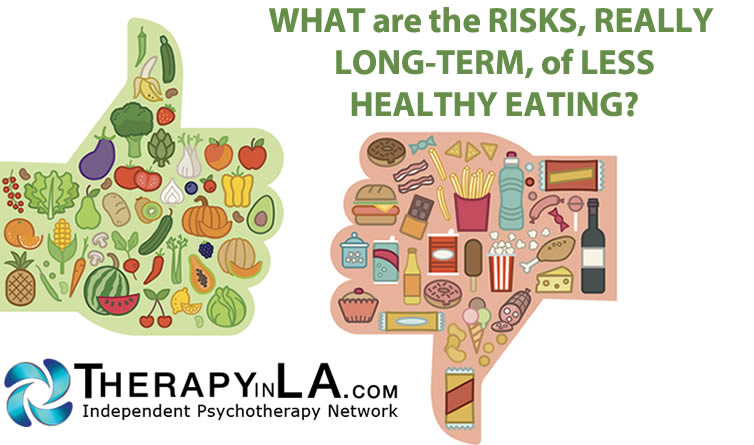WHAT are the RISKS, REALLY LONG-TERM, of LESS HEALTHY EATING?
WHAT are the RISKS, REALLY LONG-TERM, of LESS HEALTHY EATING?
By Alan M. Solomon, Ph.D.
To lower the risk of developing dementia a simple nutritional plan is very helpful: eating less “ultraprocessed foods” (UPF). In a long-term study, individuals who consumed the highest amounts of soft drinks, chips and other UPF’s had a much higher risk of developing dementia versus their peers who ate the lowest amounts of these foods.
More precisely, and worrisome, an increase by 10% of UPF eating, increased the risk of dementia by 25%. The reverse was also true: replacing UPF’s with unprocessed, or minimally processed foods, resulted in a lower risk, an encouraging result about the impact of healthier nutrition at any point in life (https://www.medscape.com/viewarticle/978125 ).
The lead author of the study, Huiping Li, Ph.D., noted that besides the high levels of salt, fat, and sugar, these foods “…may also contain food additives or molecules from packaging, or produced during heating, all of which have been shown in other studies to have negative effects on thinking and memory skills.” These foods are also low in fiber and protein.
UPF’s include soft drinks, salty and sugary snacks, ice cream, sausage, deep-fried chicken, yogurt, canned baked beans and tomatoes, ketchup, mayonnaise, packaged guacamole and hummus, packaged breads, and flavored cereals. Other studies have also shown such foods to be linked to cancer, cardiovascular disease, diabetes, and mortality in general.
The study included more than 72,000 individuals in a health data base in the U.K. The average age of the participant was 61.6 years old, and 43.7% had college degrees. None of them had dementia at the start. Over 10 years of follow-up, 518 developed dementia: 287 Alzheimer’s disease, 119 vascular dementia, and 112 unspecified dementia.
The group with the lowest UPF consumed 9% of their diet as UPF’s, or 225 grams ( about one-half pound) per day. The highest group of UPF consumption ate 28% of their daily diet as UPF’s, or 814 grams (almost 2 pounds). The highest UPF consumption individuals had a 50% higher risk of developing dementia.
Dementia patients tended to be male and older, with longer sleep duration, lower physical activity levels, a higher family history of dementia or cardiovascular disease. Beverages (soft drinks and sodas) were the main contributors to UPF consumption, 34% of overall UPF intake. Sugary products were next with 21%, followed by UPF dairy products with 17%, and salty snacks with 11%.
Substituting UPF’s with unprocessed, or minimally processed, foods lowered the risk of dementia overall by 19%, 22% for vascular dementia. The healthier choices include fresh fruit, vegetables, legumes, milk, and meat. A fifty-gram increase of healthy foods (half an apple, a serving of corn, a bowl of bran cereal, and a simultaneous decrease of UPF’s by fifty grams (a chocolate bar, serving of fish sticks), decreases the risk of dementia by 3%. Just imagine what more substantial shifts could produce in better long-term outcomes.
Alan M. Solomon, Ph.D. is a clinical psychologist in private practice in Torrance, CA. A member of the Independent Psychotherapy Network, he can be reached at 310 539-2772 or dralanms@gmail.com Telehealth or in-person sessions are available.
Copyright 2022 by Alan M. Solomon, Ph.D.

